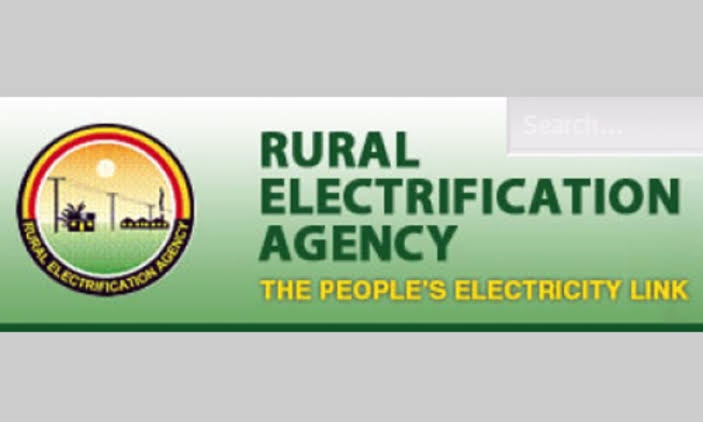The Rural Electrification Agency (REA), in collaboration with First City Monument Bank (FCMB), has intensified efforts to attract private and institutional investors to Nigeria’s rapidly growing clean energy sector. The partnership aims to accelerate the deployment of renewable energy solutions across rural and underserved communities, fostering economic growth and environmental sustainability.
Speaking at a recent Clean Energy Investment Forum in Abuja, the Managing Director of REA, Ahmad Salihijo Ahmad, highlighted that the collaboration between government and the private sector was crucial to achieving Nigeria’s energy transition goals. He explained that the partnership with FCMB was designed to provide access to financing for renewable energy developers and entrepreneurs who are driving off-grid electrification across the country.

According to him, Nigeria’s clean energy market holds immense potential for job creation and rural transformation if supported with the right funding mechanisms. “We are creating an enabling environment for investors and financiers to participate actively in the renewable energy ecosystem. The objective is to bridge the energy gap, power small businesses, and promote inclusive economic growth,” Ahmad stated.
He added that REA has been implementing key projects under the Nigeria Electrification Project (NEP) and Solar Power Naija Programme, which have collectively provided clean power to hundreds of thousands of households and businesses. Through these initiatives, the agency has mobilized both local and international capital to expand access to electricity in remote areas.
FCMB’s Executive Director, Bayo Adesina, who represented the bank at the event, reaffirmed the institution’s commitment to financing sustainable energy ventures. He said FCMB is prioritizing renewable energy as a strategic sector under its green finance framework, which focuses on projects that reduce carbon emissions, enhance energy efficiency, and support environmental resilience.
“We are proud to partner with REA in building a cleaner, more sustainable energy future for Nigeria. Through our financing solutions, we want to enable developers, startups, and cooperatives to scale renewable energy projects that deliver lasting social and economic value,” Adesina stated.
He further disclosed that FCMB had already supported several renewable energy companies with affordable financing, technical advisory, and capacity-building programmes. The bank, he said, was leveraging its partnerships with development finance institutions and climate funds to extend credit to clean energy innovators and small businesses.
Energy experts at the forum noted that Nigeria’s renewable energy sector remains largely untapped despite its vast potential in solar, hydro, biomass, and wind power. They stressed that collaboration between public institutions and financial partners is vital to overcoming barriers such as limited funding, high technology costs, and lack of technical expertise.
According to Dr. Temi Oduwole, an energy policy analyst, the REA-FCMB partnership represents a significant step toward mobilizing private capital for sustainable electrification. “Government alone cannot finance the energy transition. Banks and investors must see renewable energy as a profitable and impactful venture,” she said. “This partnership signals a new era of financial innovation that can unlock Nigeria’s clean energy potential.”
The REA boss also noted that clean energy investments are essential to meeting the government’s target of achieving net-zero emissions by 2060, in line with global climate goals. He added that the agency was working closely with stakeholders, including development partners and local communities, to ensure that renewable energy solutions are inclusive and affordable.
Ahmad explained that several solar mini-grid and standalone systems have been commissioned across the country under REA’s supervision. These projects have not only reduced dependence on fossil fuels but also empowered rural entrepreneurs by improving access to reliable electricity.
In a similar vein, the Federal Ministry of Power has expressed support for the ongoing collaboration, describing it as a model for sustainable financing of energy access initiatives. A ministry official emphasized that partnerships like REA-FCMB will play a pivotal role in bridging Nigeria’s 85 million-person energy access gap.
FCMB also announced plans to roll out clean energy financing products tailored for small businesses, households, and communities interested in adopting renewable technologies. These products will cover solar home systems, energy-efficient appliances, and hybrid solutions for small and medium enterprises (SMEs).
The bank said it was committed to promoting financial inclusion in the renewable energy sector, ensuring that women, youth, and rural populations benefit from affordable and sustainable power. FCMB’s sustainability strategy aligns with the United Nations Sustainable Development Goals (SDGs), particularly Goal 7, which seeks to ensure access to affordable, reliable, sustainable, and modern energy for all.
Participants at the forum called for policy consistency and regulatory incentives to attract long-term private investments in clean energy. They urged the government to provide tax breaks, import duty waivers on renewable energy equipment, and risk mitigation mechanisms to encourage local production and financing.
Meanwhile, REA disclosed that it has launched a monitoring and evaluation framework to ensure transparency and accountability in all renewable energy projects implemented under its watch. The framework, according to Ahmad, will ensure that investors’ funds are effectively utilized to achieve measurable social and economic impact.
Both REA and FCMB reaffirmed their shared commitment to building an inclusive, sustainable energy future for Nigeria. The two institutions pledged to continue collaborating with other financial institutions, development agencies, and local governments to scale up renewable energy adoption and contribute to Nigeria’s green economy transition.
“This partnership is not just about power generation; it’s about empowerment — empowering communities, small businesses, and future generations to thrive in a sustainable environment,” Ahmad concluded.
The initiative marks a significant milestone in Nigeria’s clean energy journey, underscoring the growing recognition that public-private partnerships are key to unlocking the country’s renewable potential. With REA and FCMB leading the charge, stakeholders are optimistic that more investment will flow into the sector, bringing the nation closer to achieving universal energy access.
Support InfoStride News' Credible Journalism: Only credible journalism can guarantee a fair, accountable and transparent society, including democracy and government. It involves a lot of efforts and money. We need your support. Click here to Donate
